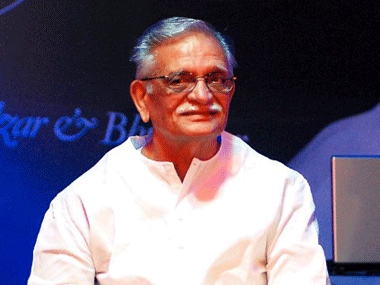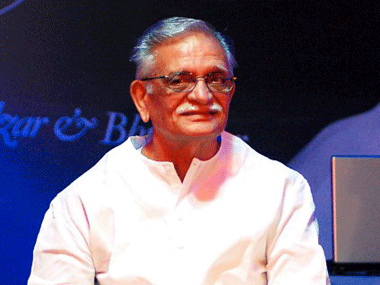by Gautam Chintamani The highest honour in Indian cinema, the Dadasaheb Phalke Award is given to a person who has significantly contributed to Indian cinema and there couldn’t arguably be anyone more ideal than this year’s honoree, Gulzar. One of the most potent creative forces in the last four-and-a-half decades of Hindi cinema, Gulzar has left an indelible impact on not just lyrics, for which he is best known, but also writing, producing and directing across genres and formats. Constituted in 1969 in the memory of Dadasaheb Phalke, often considered to the father of Indian cinema, the award is a confirmation of the life’s work of those who have contributed to not just the medium of Indian cinema but also to its growth and promotion. Gulzar joins a hallowed club of icons such as Naushad, Satyajit Ray, V Shantaram, Raj Kapoor, Lata Mangeshkar, Raj Kapoor, Dev Anand, B R and Yash Chopra, Hrishikesh Mukherjee, Bhupen Hazarika and Manna Dey to name a few and yet, he is perhaps peerless in a league of his own. Very few have managed to have an impact of almost all realms of filmmaking as Gulzar, who initially started out as a lyricist. Having joined Bimal Roy in the late 1950s it was with Mora gora range layele in the director’s Bandini (1963) that Sampooran Singh ‘Gulzar’ truly announced his arrival. [caption id=“attachment_1479691” align=“alignleft” width=“380”]  Few have contributed as much to films as Gulzar. AFP[/caption] In addition to lyrics he started writing dialogues, and screenplay for films such as Sunghursh (1986), Aashirwaad (1968) besides seminal classics such as Khamoshi (1969) and Anand (1971). For his maiden directorial venture Gulzar tapped into the unrest amongst the youth, that in spite of being a common real life phenomenon at the time was rarely explored on screen. Mere Apne (1971) had two groups of warring aimless unemployed youth who are exploited by rival political parties for their own benefit. Besides a flock of then young and upcoming talents such as Vinod Khanna, Shatrughan Sinha, Danny Denzongpa, Asrani and Dinesh Thakur, Mere Apne also featured Meena Kumari in one of her most memorable roles and perhaps truly initiated the genre of political films in Bollywood. Since then he has juggled being a lyricist, a writer and a director and his versatility can be gauged from the work he created in two single years namely 1972 and 1975. In 1972 he directed Koshish (the struggles of deaf and mute couple trying to raise a ‘normal’ child), Parichay (a tutor helping to bridge the gap between a patriarch and his errant grandchildren) and Achanak (a song-less drama centered around a military man who kills his wife and her lover) and later in 1975 in besides directing he also wrote the songs as well as the story for Mausam, Khushboo and Aandhi. In a career spanning nearly 60 years Gulzar’s works include some of Hindi cinema’s best dialogues and songs. An artiste’s influence can be judged from the impact his or her absence would have on the field. If that were the case then nearly a third of RD Burman, Hrishikesh Mukherjee, Kishore Kumar and Lata Mangeshkar’s best would go missing and who knows if there would have been a Vishal Bhardwaj at all. But Gulzar’s true legacy lies elsewhere. Majrooh Sultanpuri, one of the two other lyricists to be awarded the Phalke, bought poetry closer to the average viewer by introducing Urdu words such as jaaneman and sanam in songs and Gulzar took it up a notch by making songs more accessible. Part conversational and extremely inventive at times, Gulzar’s lyrics like Golmaal’s (1979) Sapne mein dekha sapna made the colloquial, and even mundane prose appear to be textured poetry. Reacting to the lyrics for Ijaazat’s (1987) Mera kuch samaan, RD Burman told his favorite collaborator that only a newspaper report would be tougher to compose to. One of the first to adapt Shakespeare in Hindi cinema his Angoor (1982), which was a re-imagination of his own script Do Dooni Chaar (1968), both based on A Comedy of Errors continues to remain a hallmark in Indian comedies. A consummate artiste, Gulzar never allowed either his success or audience’s acceptance to entrap him to a genre or format. His television credits which include Mirza Ghalib and the title track for the Hindi version of The Jungle Book (Chaddi pehen ke phool khila hai) stand as tall as his film works as do his collaborative albums with Jagjit Singh (Marasim) and Ghulam Ali (Visaal). For someone who has never really made much of awards even though his shelf houses an Oscar, a Grammy, a Sathiya Akademi Award amongst numerous others, the Phalke, unlike the case of some other recipients, is a timely honour to a man who is a true celebration of the philosophy that guides the citation.
The highest honor in Indian cinema, the Dadasaheb Phalke Award is given to a person who has significantly contributed to Indian cinema and there couldn’t arguably be anyone more ideal than this year’s honoree, Gulzar.
Advertisement
End of Article
Written by FP Archives
see more


)
)
)
)
)
)
)
)
)



